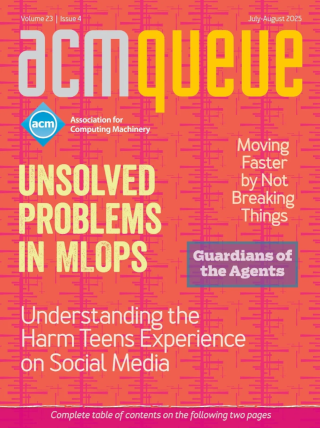
The Science of Managing Data Science:
Lessons learned managing a data science research team
What are they doing all day? When I first took over as VP of Engineering at a startup doing data mining and machine learning research, this was what the other executives wanted to know. They knew the team was super smart, and they seemed like they were working really hard, but the executives had lots of questions about the work itself. How did they know that the work they were doing was the "right" work? Were there other projects they could be doing instead? And how could we get this research into the hands of our customers faster?
From the EDVAC to WEBVACs:
Cloud computing for computer scientists
By now everyone has heard of cloud computing and realized that it is changing how both traditional enterprise IT and emerging startups are building solutions for the future. Is this trend toward the cloud just a shift in the complicated economics of the hardware and software industry, or is it a fundamentally different way of thinking about computing? Having worked in the industry, I can confidently say it is both.
Using Free and Open Source Tools to Manage Software Quality:
An agile process implementation
The principles of agile software development place more emphasis on individuals and interactions than on processes and tools. They steer us away from heavy documentation requirements and guide us along a path of reacting efficiently to change rather than sticking rigidly to a pre-defined plan. To support this flexible method of operation, it is important to have suitable applications to manage the team’s activities. It is also essential to implement effective frameworks to ensure quality is being built into the product early and at all levels. With these concerns in mind and coming from a budget-conscious perspective, this article will explore the free and open source applications and tools used by one organization in its quest to build process and quality around its projects and products.
Evolution and Practice: Low-latency Distributed Applications in Finance:
The finance industry has unique demands for low-latency distributed systems.
Virtually all systems have some requirements for latency, defined here as the time required for a system to respond to input. Latency requirements appear in problem domains as diverse as aircraft flight controls, voice communications, multiplayer gaming, online advertising, and scientific experiments. Distributed systems present special latency considerations. In recent years the automation of financial trading has driven requirements for distributed systems with challenging latency requirements and global geographic distribution. Automated trading provides a window into the engineering challenges of ever-shrinking latency requirements, which may be useful to software engineers in other fields.



